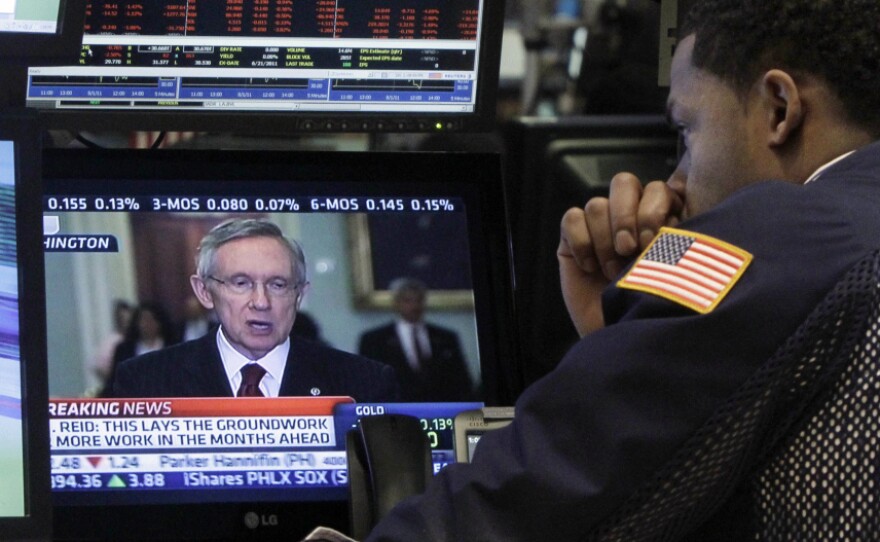Congress' tentative deal to raise the nation's debt ceiling calls for more than $2 trillion in spending cuts, far short of the $4 trillion in deficit reductions proposed earlier in the process.
And that keeps the doors open to a potential downgrade in the country's credit rating. Of the three major ratings agencies, Standard & Poor's toed the hardest line on a possible downgrade to U.S. debt.
Last month, S&P said there was a 50 percent chance the U.S. could lose its top AAA rating if Congress failed to come up with a "credible agreement to reduce the debt."
It's not clear that the current deal meets the S&P's standards, and the company declined to comment. Moody's, meanwhile, said it would likely confirm its AAA rating as long as the U.S. makes its interest payments.
Uncharted Waters
But there is a firm that already downgraded the U.S. several weeks ago.
"It was increasingly more difficult to justify, analytically, a AAA rating for the U.S.," says Bill Hassiepen, a vice president at Egan-Jones — a small, 10-person rating firm based outside of Philadelphia. "And our opinion back then is that the debt levels are unsustainable."
Hassiepen says it's just simple math: The U.S. economy is growing very slowly, and the government continues to have to borrow a lot to pay its bills. Slow economic growth won't change that picture. So, for all the crowing about a debt deal, he says it changes nothing about his outlook.
I by no means think that the compromise on the debt ceiling removes the specter of a downgrade.
"The U.S. — even at the most optimistic case — is still going to add $830 billion to the debt every year over the 10-year period of time," he says. "Frankly, right now the United States is in uncharted waters because it has never had debt at such high levels, with the exception of the Second World War"
And after World War II, the economy boomed in a way that Hassiepen says is not likely in the future.
"I by no means think that the compromise on the debt ceiling removes the specter of a downgrade," says Carmen Reinhart, a fellow at the Peterson Institute for International Economics.
Preparing For A Downgrade
She says the ratings agencies identified vulnerabilities in the economy that will continue to hamper growth.
"What we have now that we did not have at the end of World War II, is that we also have a very high level of household debt," she says.
Reinhart says every market watcher is preparing for a downgrade, including the Federal Reserve. She says the central bank will try to manage a docked rating by simply putting a little less emphasis on ratings in general.
"We're all looking a little uglier now, and so we're not looking at the mirror too much," she says.
But if the outlook is so grim, does the U.S. deserve a bigger downgrade than just the one notch that agencies have discussed?
Hassiepen at Egan-Jones says he would give it a lower grade, except that the rest of the world's debt problems are even worse.
"The reality is the United States economy is still the only game in town," he says. "I don't want to be cavalier about it, but where else is it going to go?"
And so the U.S. isn't likely to suffer much if the other ratings agencies act. Because on a relative basis, the U.S. is still a pretty good bet for investors.
Copyright 2022 NPR. To see more, visit https://www.npr.org. 9(MDAzMjM2NDYzMDEyMzc1Njk5NjAxNzY3OQ001))







